Talking about Fashion
 |
Click to get this lesson as an Adobe Acrobat file for printing or use in a class. |
 |
Click to listen to this lesson while you read. |
You know, I can talk about English grammar as an expert, I think. But, this week we will be talking about something where I'm not an expert. This week we're going to be talking about clothing, and about the kinds of clothing that people wear. The word for that is fashion, and I have to say that I'm not an expert in it. Some of my clothes are ten years old! I wore them in high school!
Click Here for Step-by-Step Rules, Stories and Exercises to Practice All English Tenses
But, even if I don't know which clothes are fashionable, I do know the words to describe them. When I talk to my students about clothing, the best system is for them to tell me what clothes are fashionable, and I tell them how to describe them in English!
So, this week we're starting in on a topic where everyone has something to say. Feel free to tell me what you think in the comments. Are there "fashion" topics that you think got left out? Do you think that you can describe what your fashion or style is? How is your taste in clothing different from the people that you know? Let me know!
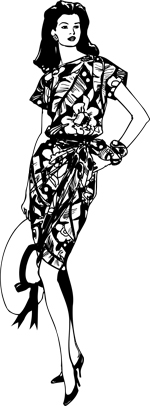
Here's the vocabulary that we'll be using this week:
Sleeve: The sleeve is the part of a shirt that holds your arm. Shirts, sweaters, sweatshirts, and coats all have sleeves. When I make a mess eating, I sometimes clean my face with my shirt sleeves, though my wife always tells me I shouldn't!
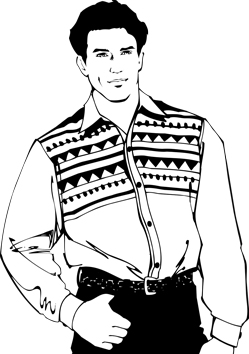
Short-Sleeved: When a shirt has sleeves that come over the shoulder and then stop, it's a short-sleeved shirt. I think short-sleeved shirts are more comfortable in the spring and summer! And most T-shirts are short-sleeved. When you play sports, you mostly want a short-sleeved shirt.
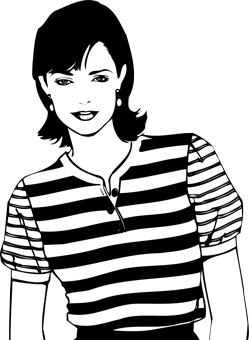
Long-Sleeved: Long-sleeved is obviously the opposite of short-sleeved. When a shirt has sleeves that come all the way to your hands (or almost all the way to your hands), it's a long-sleeved shirt. I wear long-sleeved shirts with a collar to work. If you wear a suit and tie, you probably have a long-sleeved shirt on.
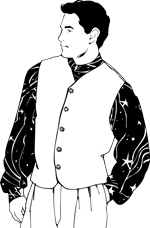
Collar: The part of a shirt that goes around your neck is the collar. Though, technically, every shirt that has an opening for your head has a collar, we normally use the word to refer to the part of a shirt that covers your tie. When you think of a suit, you probably think of it with a long-sleeved shirt with a collar.
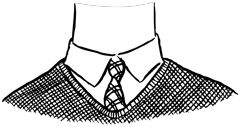
Crew-neck: T-shirts don't have a collar, not the kind you use for a tie. They are what we call crew-neck shirts. Crew-neck describes any shirt with just a round hole for your head. T-shirts are the most common crew-neck shirts, but you can also buy crew-neck sweaters.
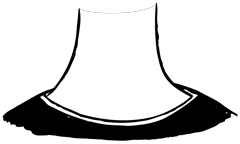
Turtleneck: If you wear a shirt that has what looks like a third sleeve for your head, you're probably wearing a turtleneck. I wear a turtleneck when it's cold, or sometimes under a jacket, because it's a less conservative "formal" look.
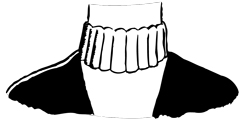
Old-fashioned: Do you know anybody who likes things the way they were fifty or a hundred years ago? Sometimes our grandparents talk this way. We say they're old-fashioned. Old-fashioned is the opposite of modern. We think of our grandparents as being old-fashioned. I like big, old-fashioned cars and I like old-fashioned clothes – suites with vests and full-length dresses – too!
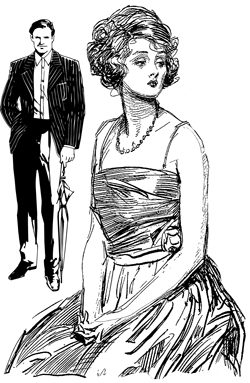
Taste: You probably know the word "taste" meaning the way food feels in your mouth. But it has another meaning. Your taste is not what someone else would taste if they were to eat you, it's the things that you like. The cars that are your taste in cars. And, if you only like old-fashioned clothes, then you have an old-fashioned taste in clothes.
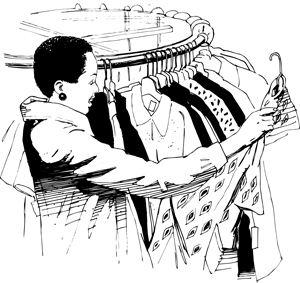
Modern: Do you like new buildings? The ones made of concrete and glass? Then you like modern buildings. Modern means recently made, or with a new design. Computers and iPods are modern inventions, and what you hear on a "pop" radio station is modern music.

Trendy / Fashionable: When we talk about clothing, we don't normally say modern. Because tastes change almost every month, the newest taste in clothing is called trendy or fashionable. The clothing you can see on MTV, for example, isn't my taste in clothes, but it's certainly trendy! Most of my students think my clothing is old-fashioned, they prefer fashionable clothes.
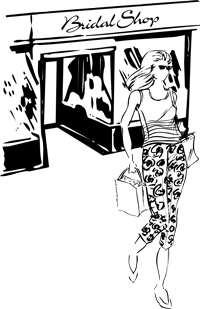
Trend: You can use the word "trend" for more than clothing. A trend is the direction things are going, or the newest thing. It seems, for example, that the iPhone is the newest trend. Fashionable describes any clothing that most people seem to like, but a trend is the very newest thing on the market. Trendy clothing is, I think, the most expensive!

Fashion: Can you think of clothing that all of your friends like? That's the fashion (or the "style," the words mean the same thing) of your friends. Fashion refers simply to clothing that is popular. The clothing you see most people wearing on the street is the current fashion. The current fashion isn't always the newest thing (sometimes old fashions "come back"), but the current fashion is seldom cheap!
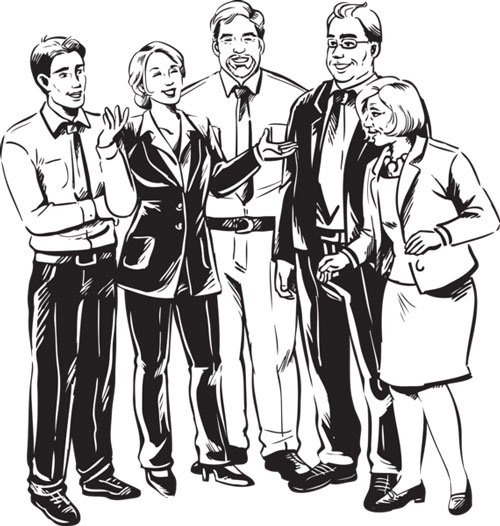
Non-conformist: Almost everyone knows what the newest trend is, or what the current fashion is, but there are a lot of people who try to wear clothing that is the exact opposite of what is fashionable. We call these people non-conformists. If you know the terms "punks" (a person that typically wears metal chains, leather clothes and has brightly colored hair) or "skinheads" (a person with a shaved head who belongs to a gang), both groups of people are non-conformists: the clothing they wear isn't trendy!

Get Updates, Special Offers, and English Resources
Download your FREE GIFT (the first two chapters of
English Short Stories Book and Workbook)
as soon as you join!

By submitting your email, you consent to receiving updates and newsletters from us and to the sharing of your personal data with third parties for the purposes of sending you communications. We will not spam you. You can unsubscribe at any time. For more information, please see our privacy policy.








